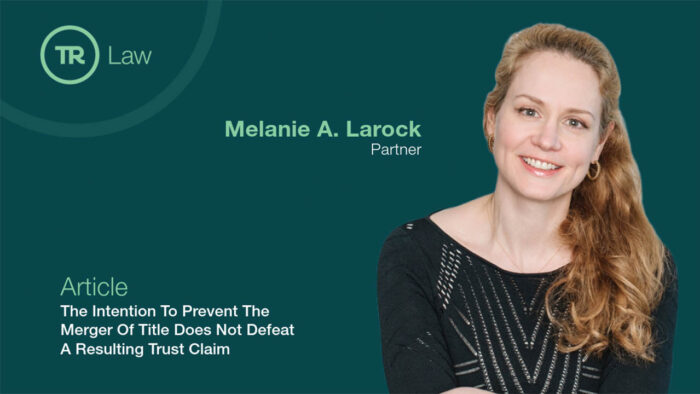Repairing the catastrophic impairment test
Author(s): Darcy R. Merkur
September 11, 2009
Head injury victims in Ontario with depressed Glasgow Coma Scale (GCS) scores following a motor vehicle accident will no longer be denied access to the over $2,000,000 in accident benefits available to those suffering a “catastrophic impairment.”
In Liu v. 1226071 Ontario Inc., [2009] O.J. No. 3014, the Ontario Court of Appeal made it absolutely clear that a single GCS reading of nine or less taken within a reasonable time following a car accident will meet the legal test of whether a claimant has suffered a catastrophic impairment as long as the depressed GCS reading is related to a brain impairment and is taken by someone trained to administer the test.
This pivotal decision by the Ontario Court of Appeal, released July 17, should put an end to an unfortunate trend of benefit denial and delay that developed following the lower court decision in Liu in April of 2007.
The issue of whether a claimant has suffered a catastrophic impairment has for some time been the primary issue of contention in accident benefit claims in Ontario due to the enormous financial significance of the decision. Anyone suffering a catastrophic impairment following a car accident is eligible for close to an additional $2,000,000 in accident benefits (specifically, an additional $928,000 in attendant care benefits, an additional $900,000 in medical and rehabilitation benefits, entitlement to housekeeping and home maintenance benefits of up to $5,200 per year for life as opposed to for only two years and enhanced visitor’s expenses). Those suffering a catastrophic impairment are also entitled to immediately appoint a case manager to act as their rehabilitation quarterback and to help facilitate their timely recovery.
In Liu, the plaintiff was a pedestrian hit by a car on April 9, 1999. The plaintiff struck the windshield of the vehicle and was thrown over the top of the car and into the road. The ambulance attendant on scene measured the plaintiff as having an initial GCS of three out of 15, then eight of 15, but within 40 minutes of the accident, the plaintiff’s GCS reading was 12 and rising.
Because this tort action was governed by the older Bill 59 Ontario automobile legislation, the plaintiff was only eligible to sue the at-fault driver for his future care costs, and collect the jury award of $865,000 for these costs, if he had suffered a catastrophic impairment. In the lower court decision, Justice Blenus Wright of the Ontario Superior Court of Justice considered whether the plaintiff suffered a catastrophic impairment by virtue of his initial GCS reading, pursuant to the materially unchanged definition in what is now s. 1.2(e)(i) of the Statutory Accident Benefits Schedule.
The test set out in s.1.2(e)(i) is whether the person suffered a “brain impairment that, in respect of an accident, results in a score of 9 or less on the Glasgow Coma Scale… according to a test administered within a reasonable period of time after the accident by a person trained for that purpose.”
In deciding that the plaintiff did not suffer a catastrophic impairment, Justice Wright recognized that the plaintiff suffered a brain impairment but focused on the fact that the plaintiff’s GCS level had improved to above nine within 40 minutes post-accident and that the plaintiff had made a good recovery. Justice Wright even noted that a psychologist report mentioned that the plaintiff was capable of making complex decisions, including all of his travel arrangements for two trips to China.
As a result of the lower court decision in Liu, insurers were empowered to challenge the catastrophic impairment designation based on GCS readings by arguing that the claimant’s GCS levels had improved quickly post-accident or that the claimant was on the road to a good recovery. Numerous disputes arose over the catastrophic impairment designation and, in the interim, head injury claimants often faced uncertainty in their rehabilitation options, were denied case management services and were denied access to the enhanced $6,000 per month in attendant care benefits.
In Liu, the Ontario Court of Appeal clarified that the GCS test for catastrophic impairment is a legal definition, not a medical test, and that the victim’s recovery is irrelevant to the analysis. Justice Jean MacFarland of the Ontario Court of Appeal wrote, “Provided there is a brain impairment, all that is required is one GCS score of 9 or less within a reasonable time following the accident.”
In Liu, the Ontario Court of Appeal repairs one hole in what the court describes as the patchwork Ontario automobile legislation.
Darcy Merkur is a partner at Thomson Rogers in Toronto, practising plaintiff’s personal injury litigation. He is certified as a specialist in civil litigation by the Law Society of Ontario and is the creator of the personal injury damages calculator.
Share this








